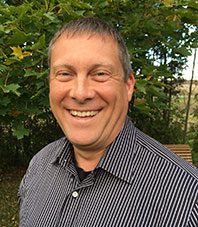What Are The Symptoms of Post-traumatic Stress Disorder?
Understanding PTSD symptoms are the first step to getting the help you need.
PTSD symptoms are categorized in the DSM-V into four major symptoms which are Flashbacks, Hypervigilance, Negative thoughts, and Avoidance of people, places or things.
Most other symptoms of Post-traumatic stress can fit into these four major areas but they can often look different from person to person, age to age and gender to gender. Below is a list of possible PTSD symptoms that a person can experience, though some of these symptoms can be the result of other medical complications or be intertwined. It is best when looking at these various symptoms that a thorough professional investigation be sought out in order to best understand the types of treatment you may need to get better.
If I think I have PTSD what should I do?
The first step would be to see a mental health professional to determine if you do have PTSD. It is also important to know that after any shocking or traumatic event that you will feel, think and act differently. Here are some steps to take that will help you:
- Speak to your family physician.
- Search out a mental health professional who specializes in PTSD and trauma. At New Hope Counselling Centre James Miklos, MCC, R.P. specializes in PTSD resolution.
- Speak with a trusted friend.
- Speak with a clergy member.
- Take a PTSD questionnaire which is available by clicking on this link HERE.
- What is ASD or Acute Stress Disorder?
After any shocking or stressful event that you have witnessed, had happen to you directly, or having heard happen to a family member or close friend you will be in a period of what is known as ASD or Acute Stress Disorder. ASD is very similar to PTSD with some exceptions such as, ASD though bearing much of the same symptoms of PTSD at times but the individual is able to resolve and process the event within a month where they return to normal healthy living again. The caution here is after the event occurs if you end up repressing it this can cause future complications to your mental and physical health.
Other PTSD symptoms can include:
- irritability, anger, or even rage
- nightmares
- disturb sleep
- difficulty getting to sleep
- difficulty staying asleep
- severe anxiety
- uncontrollable thoughts
- obsessive thinking
- substance abuse
- substance usage increases
- shaky feelings
- heart racing
- chest tightness or pain
- difficulty breathing
- frequent or profuse sweating
- the need to continually keep busy or moving
- racing mind
- difficulty remembering the traumatic event(s)
- losing the ability to enjoy activities you once enjoyed
- feeling of depression and/or worry
- feeling emotionally and possibly physically numb
- re-experiencing feelings by being triggered by daily events or people
Is it ever too late to get help for PTSD?
NO, it is never too late to get help for PTSD but getting help sooner is always better because time does not heal PTSD but rather it often grows worse over time. If your symptoms persist past one month then you need to get help immediately, because prolonging this will only complicate your health, your quality of life, your relationships, and your ability to function.
How long will it take before I feel better?
You will begin to feel better within a few sessions as a general rule of thumb but remember relief is not the same as cure. It is important to complete the therapeutic process until you are cured of PTSD. Permanent cure of PTSD after the traumatic event or events is paramount.
After treatment will PTSD ever come back again?
If you have been able to fully reprocess your past traumas and have not repressed them then you are cured of PTSD. But, if any future trauma is experienced there is a possibility that you may need treatment for that.
What is the best therapy treament for PTSD?
There are numerous therapeutic approaches that can help cure Post-traumatic stress but each person is unique therefore there is no pat answer rather it takes a well trained therapist or team of health care professionals to help you to heal. There are two important components to curing your PTSD:
- Qualified and trained PTSD therapist.
- The right kind of mental health treatment modalities.
Why is EMDR so effective for PTSD? Probably because it is the most efficient psychotherapy to help the brain reprocess trauma.
PTSD and EMDR
EMDR which is an acronym for Eye Movement Desensitization and Reprocessing. EMDR is a psychotherapy that is integrative in its approach. EMDR has been well researched and proven effective for the treatment of trauma. EMDR is known for its eye movement aspect in therapy but it is much more than that, it involves a set of standardized protocols, involving 8 phases of treatment which incorporates elements from numerous treatment approaches. EMDR when administered correctly has great lasting results. Why EMDR is so good? Simply put, it is probably the most efficient “tool” to help the brain reprocess trauma.
At New Hope Counselling Centre we have the qualified therapeutic team and various therapeutic modalities that have been proven to resolve and heal those suffering from PTSD. James Miklos, MCC, R.P. is a Certified EMDR Therapist.
Your first step is to reach out and contact us today, we can help!
 Written by James A. Miklos, MCC. James has been counselling providing mental health therapy for over 25 years. James has numerous publications and periodicals, he has also self-published the book, “The Biblical Art of Dream Interpretation”. He also is available for speaking engagements as well as conducting workshops and seminars as well.
Written by James A. Miklos, MCC. James has been counselling providing mental health therapy for over 25 years. James has numerous publications and periodicals, he has also self-published the book, “The Biblical Art of Dream Interpretation”. He also is available for speaking engagements as well as conducting workshops and seminars as well.
In addition, James Miklos holds memberships and accreditations with the following recognized organizations:
- College of Registered Psychotherapists of Ontario
- CASC – Canadian Association for Spiritual Care
- ACTA – The Association of Counselling Therapy of Alberta Registered as Counselling Therapist
- EMDR Canada
- EMDRIA
© 2021 James A. Miklos. All rights reserved. To copy or quote any of this material the entire citation and credit must be posted.
Serving Burlington, Hamilton, Oakville, Milton, Mississauga, St. Catharines and surrounding areas.
More Resorces To Better Your Life!





